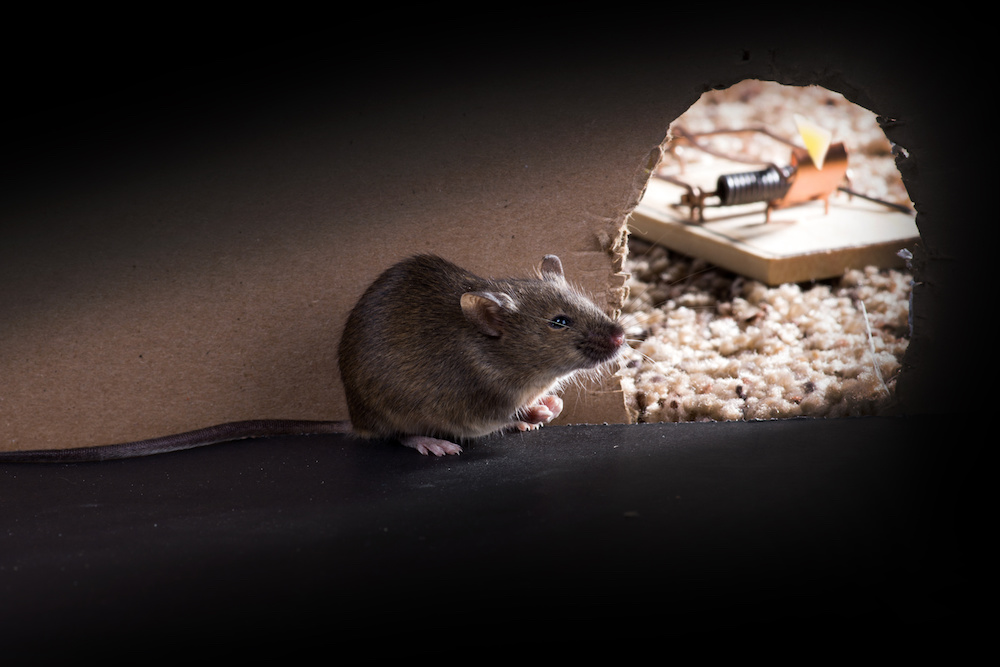Are you tired of hearing scurrying noises in your basement? The unwelcome presence of rodents can be both alarming and damaging to your home. Our comprehensive basement rodent prevention guide is here to help you tackle this issue head-on. Whether you're dealing with mice, rats, or other pesky intruders, it's crucial to implement effective strategies to safeguard your home. Let's dive into the details and explore how you can keep your basement rodent-free.

Why Rodent Prevention Matters
Rodents are more than just an annoyance; they pose significant health risks and can cause extensive damage to your property. Mice and rats carry diseases and can contaminate your food supply. Moreover, their constant gnawing can damage wires, insulation, and even the structural components of your home. By following our basement rodent prevention guide, you can protect your family from these hazards and maintain a safe living environment.
Identifying Rodent Entry Points
The first step in rodent prevention is identifying potential entry points in your basement. Rodents can squeeze through surprisingly small gaps, so it's essential to be thorough in your inspection. Check for cracks in the foundation, gaps around pipes, and any openings around windows or doors. Sealing these entry points with steel wool or caulk can significantly reduce the likelihood of rodents gaining access to your home.
For a more in-depth understanding of how to effectively close off these entry points, you can refer to this article on Rodent Exclusion Techniques.
Maintaining a Clean and Dry Environment
Rodents are attracted to environments that provide food, water, and shelter. Keeping your basement clean and dry is critical in deterring these pests. Regularly sweep and vacuum to eliminate food crumbs and debris. Address any moisture issues by fixing leaks and using a dehumidifier if necessary. By creating an inhospitable environment, you'll discourage rodents from taking up residence in your basement.
Implementing Natural Deterrents
There are several natural rodent deterrents you can use to keep pests at bay. Peppermint oil, for example, is a natural repellent that rodents find unpleasant. Soak cotton balls in peppermint oil and place them in areas where you've noticed rodent activity. Additionally, consider planting mint around the perimeter of your home to further deter rodents from entering.
Utilizing Traps and Baits Effectively
Traps and baits can be an effective way to eliminate rodents that have already infiltrated your basement. There are various types of traps available, including snap traps, glue traps, and electronic traps. When using traps, placement is key. Identify areas where you've seen droppings or signs of gnawing and set traps along their paths. For a detailed guide on the best products to use, check out Pest Control for Dark Kitchens.
If you're dealing with a significant infestation, it may be wise to consult professional pest control services. Companies like Rentokil offer expert solutions tailored to your specific situation.
Long-Term Prevention Strategies
Preventing rodents in the long term requires consistent effort. Regularly inspect your basement for new entry points and maintain cleanliness. Consider scheduling routine pest control inspections to catch any potential issues early. Additionally, maintain your yard by trimming bushes and removing debris that could serve as shelter for rodents.
Conclusion
By following the strategies outlined in our basement rodent prevention guide, you can protect your home from the dangers and nuisances associated with rodents. Consistency and vigilance are your best allies in maintaining a rodent-free environment. Remember, a proactive approach to pest control not only safeguards your home but also ensures the health and well-being of your family.

Frequently Asked Questions
How do I know if I have a rodent problem in my basement?
Common signs of a rodent problem include droppings, gnaw marks, and strange noises such as scurrying or scratching. You may also notice nesting materials or a musky odor.
What should I do if I find a rodent in my basement?
If you find a single rodent, set traps and monitor the situation closely. If you suspect an infestation, it's best to contact a professional pest control service to address the issue effectively.
Can I use DIY methods to prevent rodents?
Yes, there are several DIY methods you can use for rodent prevention, such as sealing entry points, using natural deterrents, and maintaining a clean environment. However, for severe infestations, professional intervention may be necessary.
